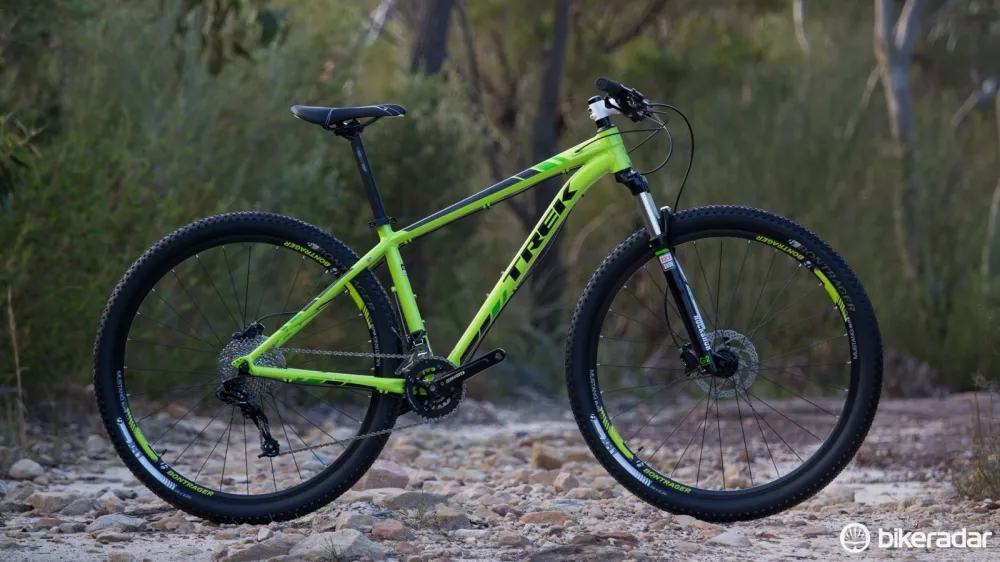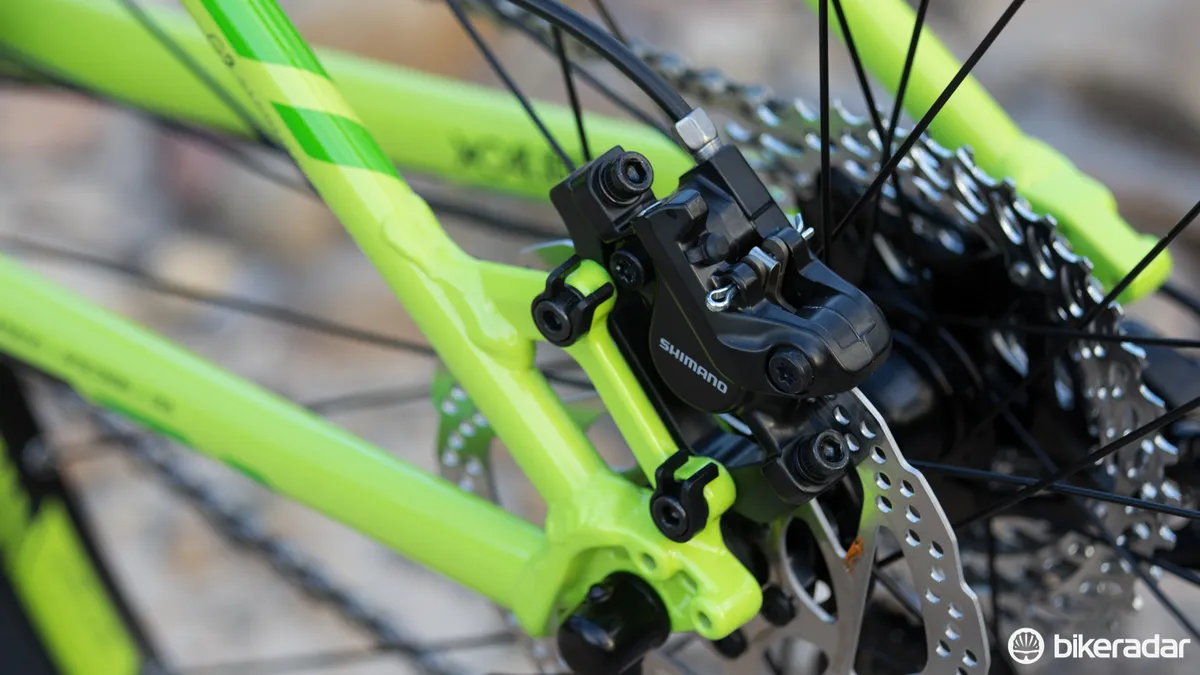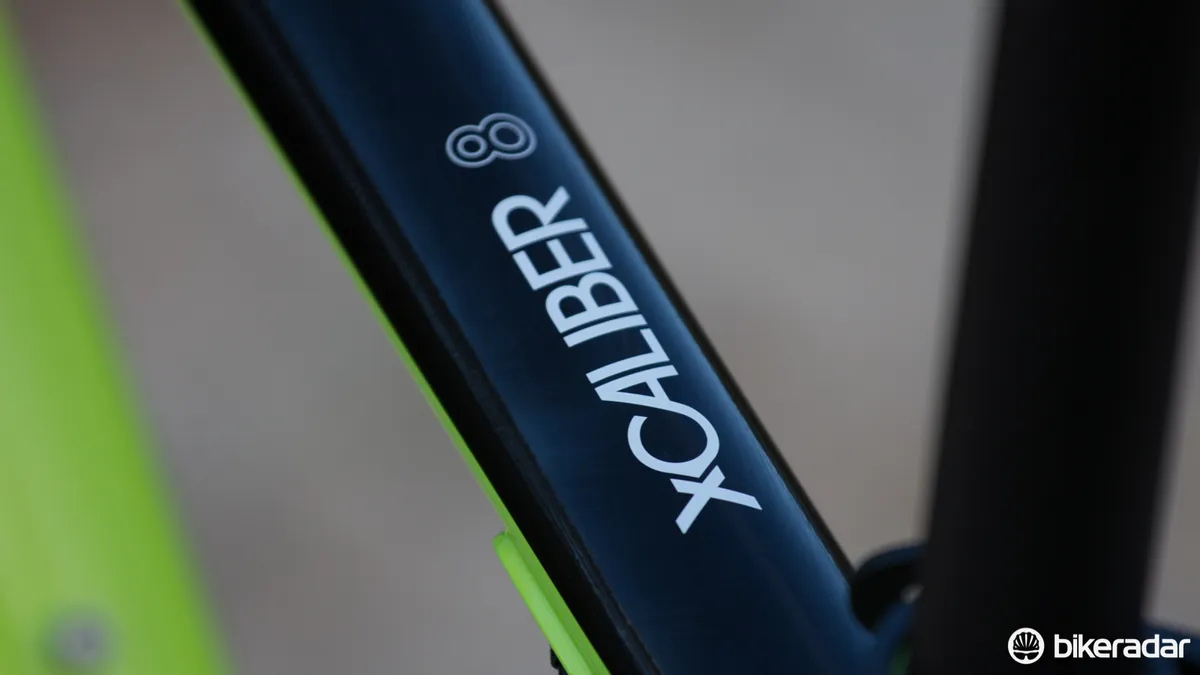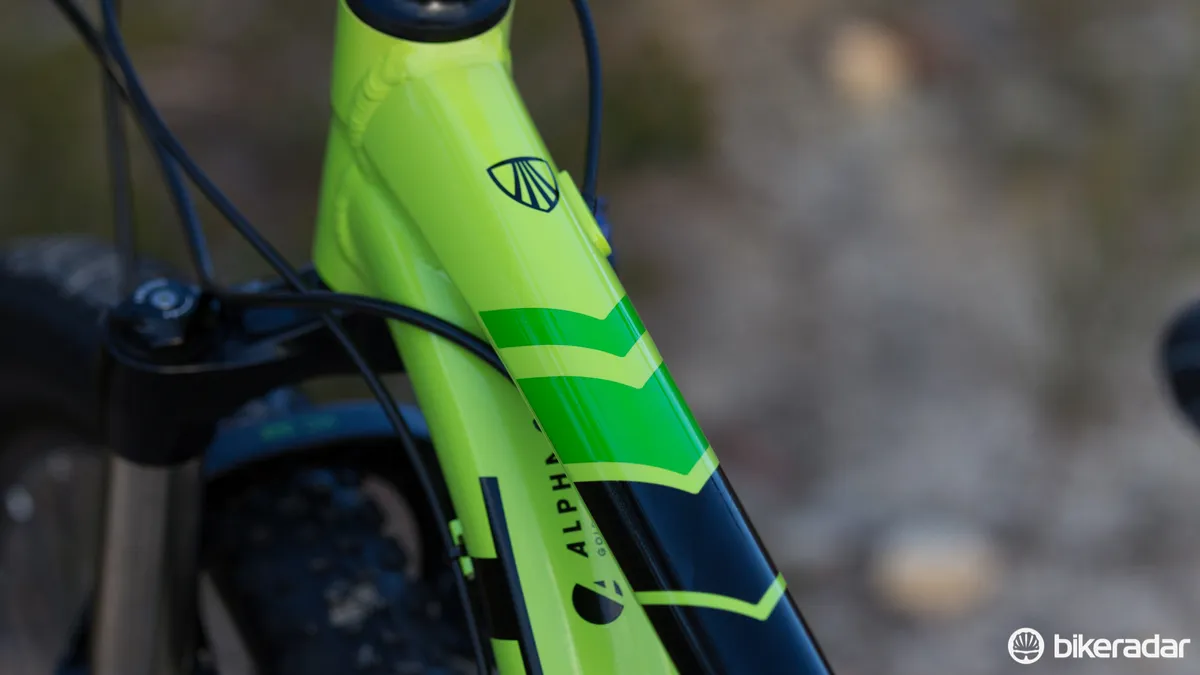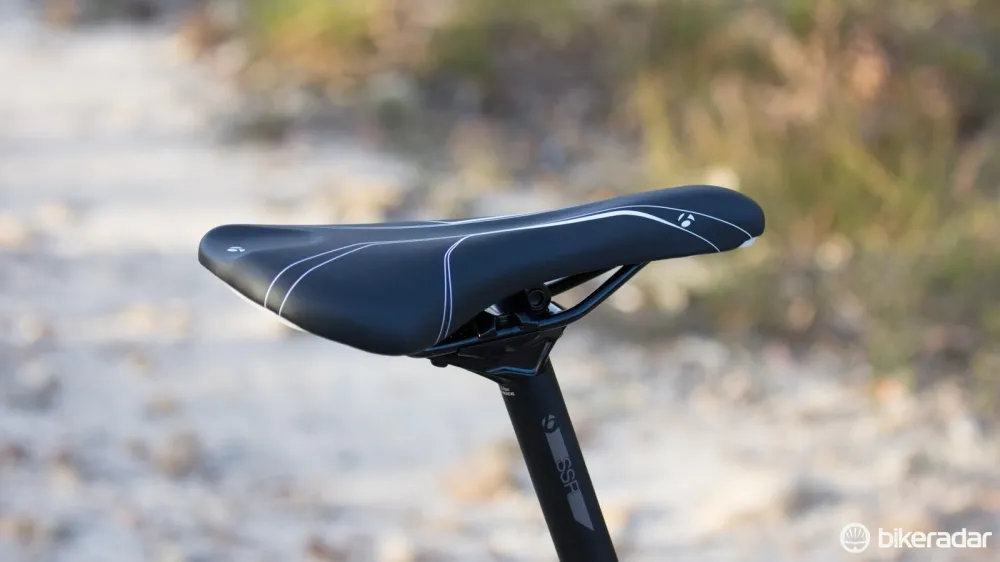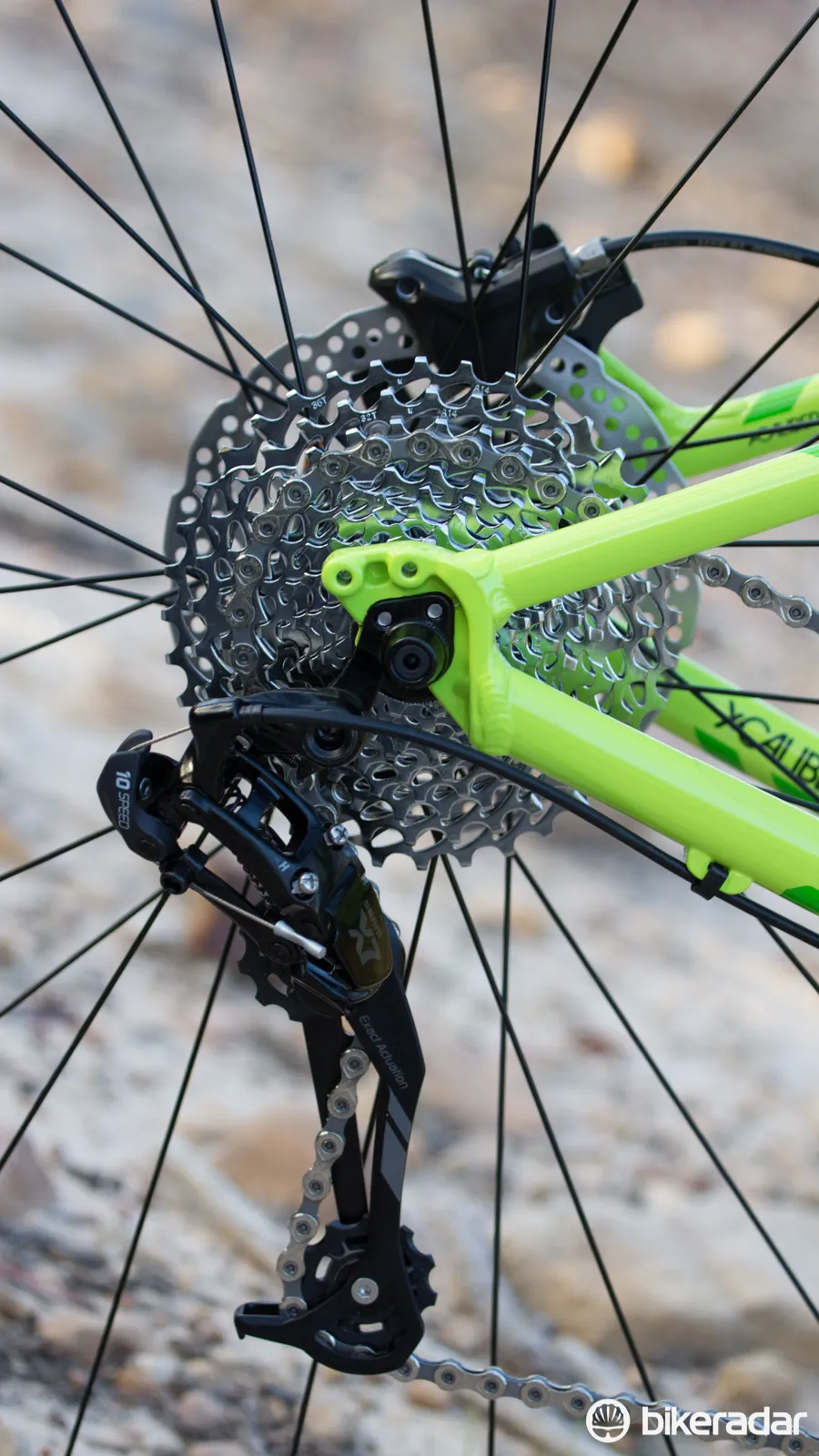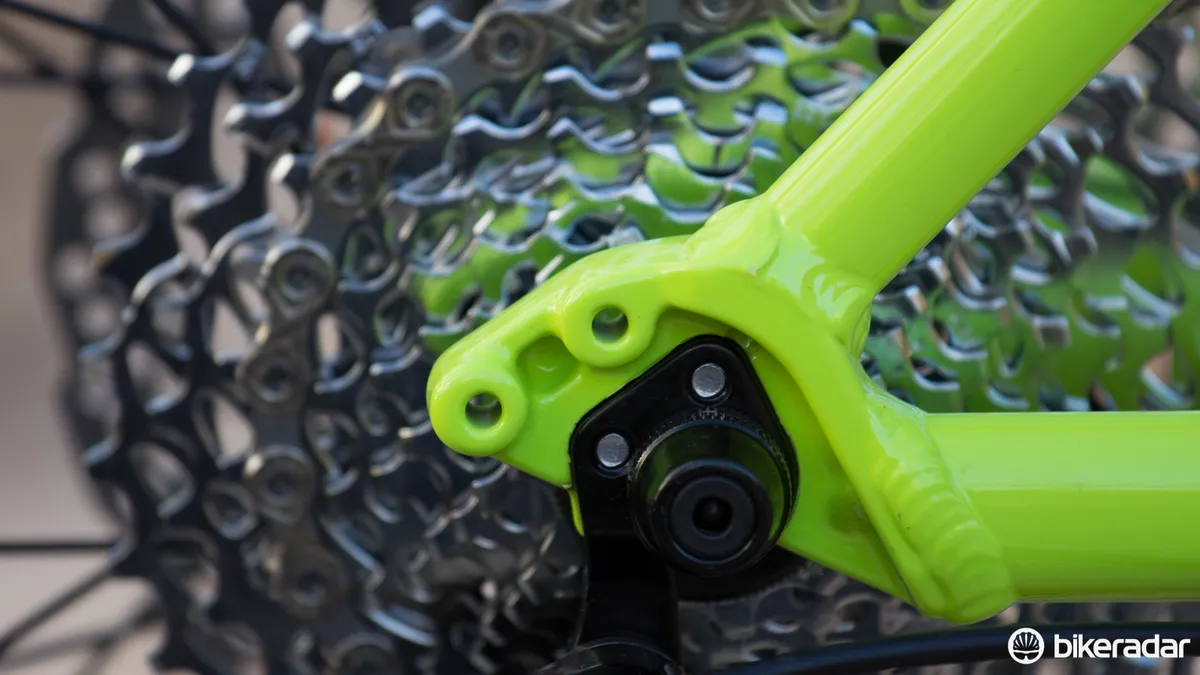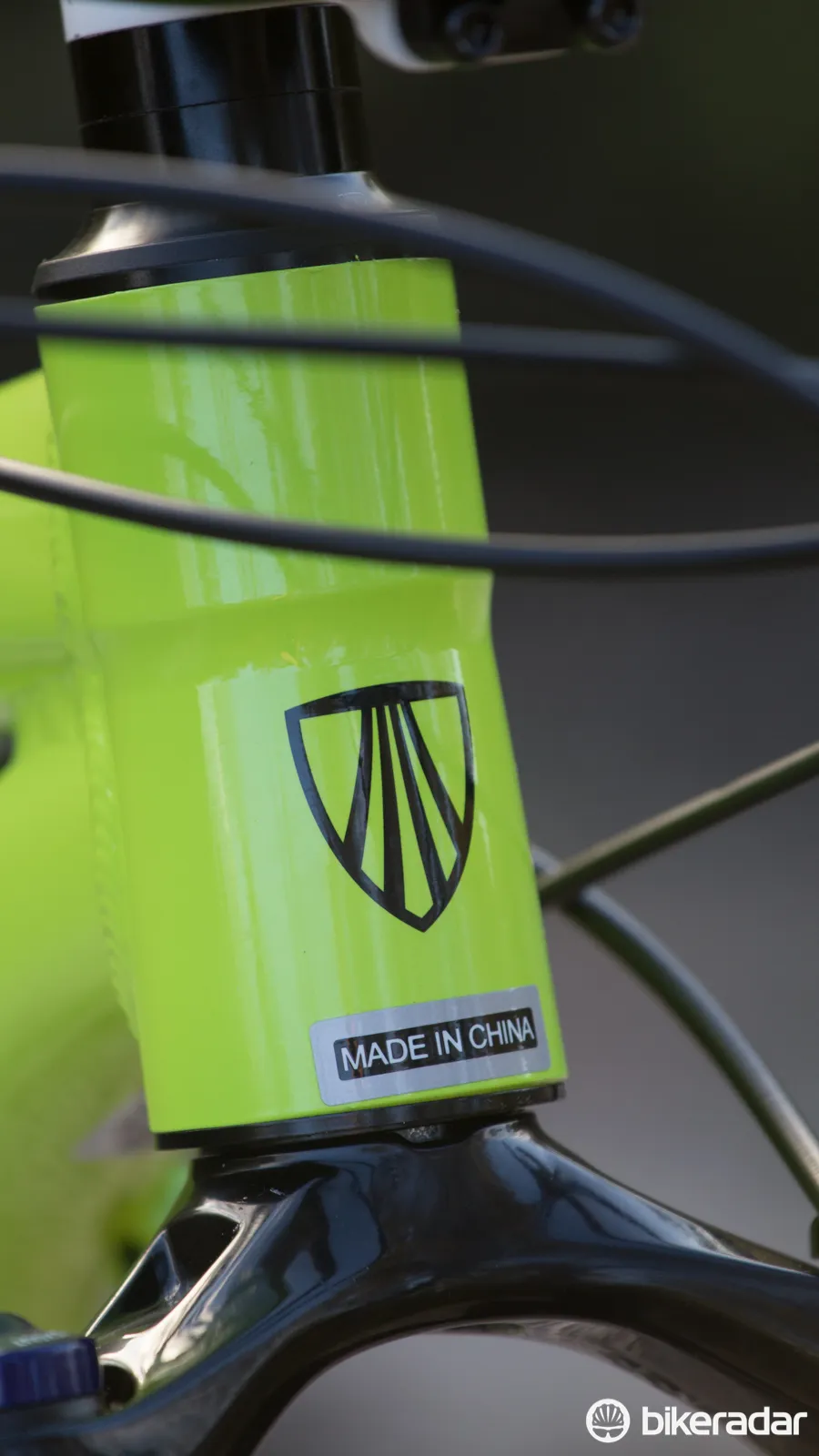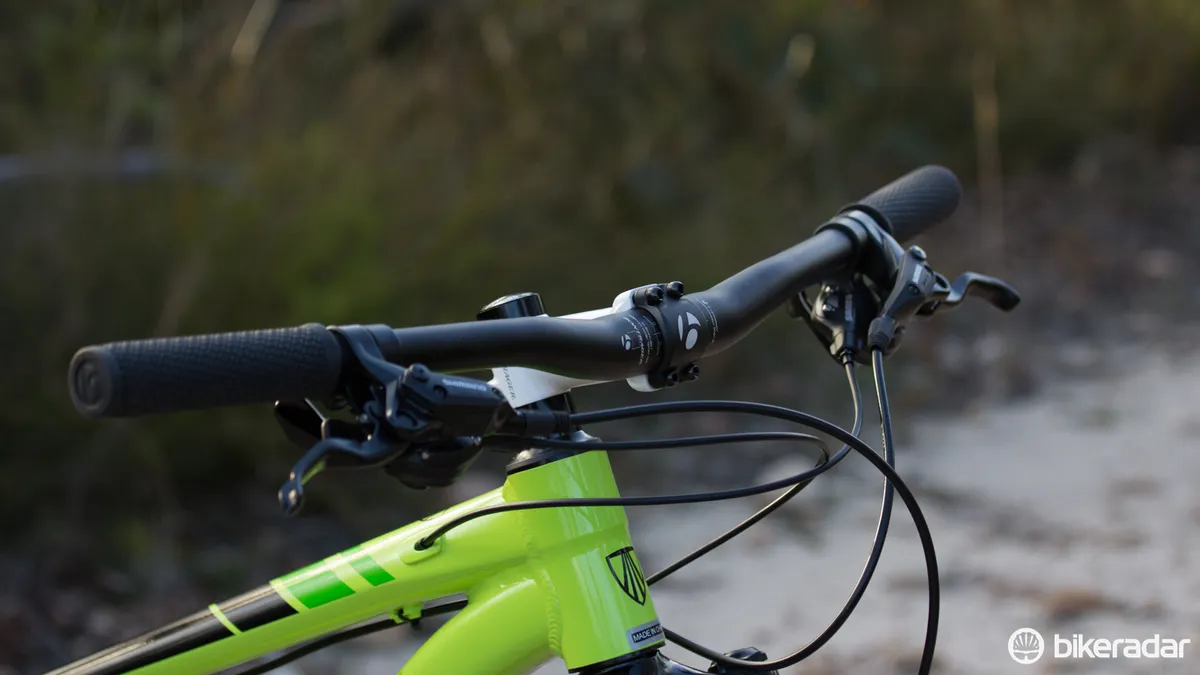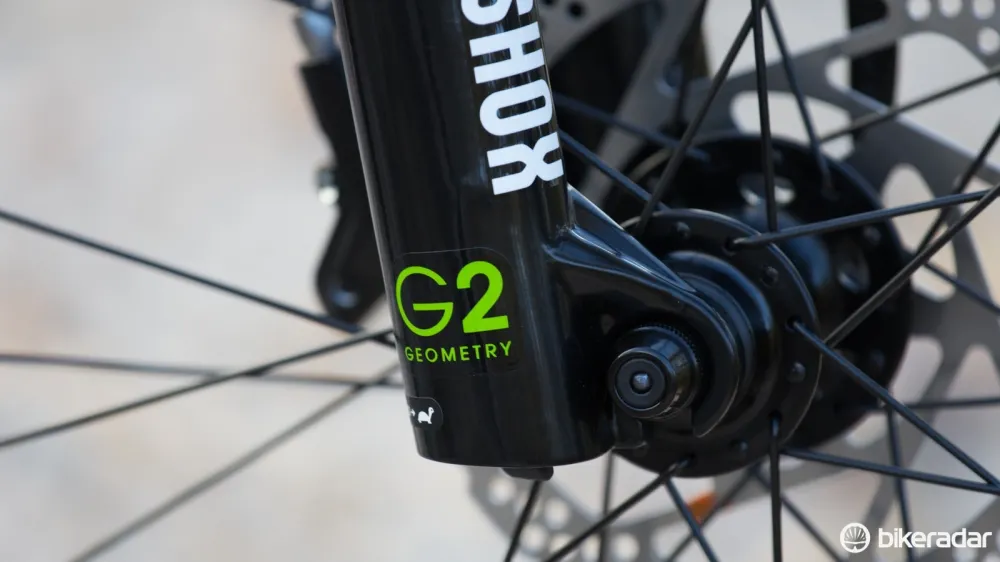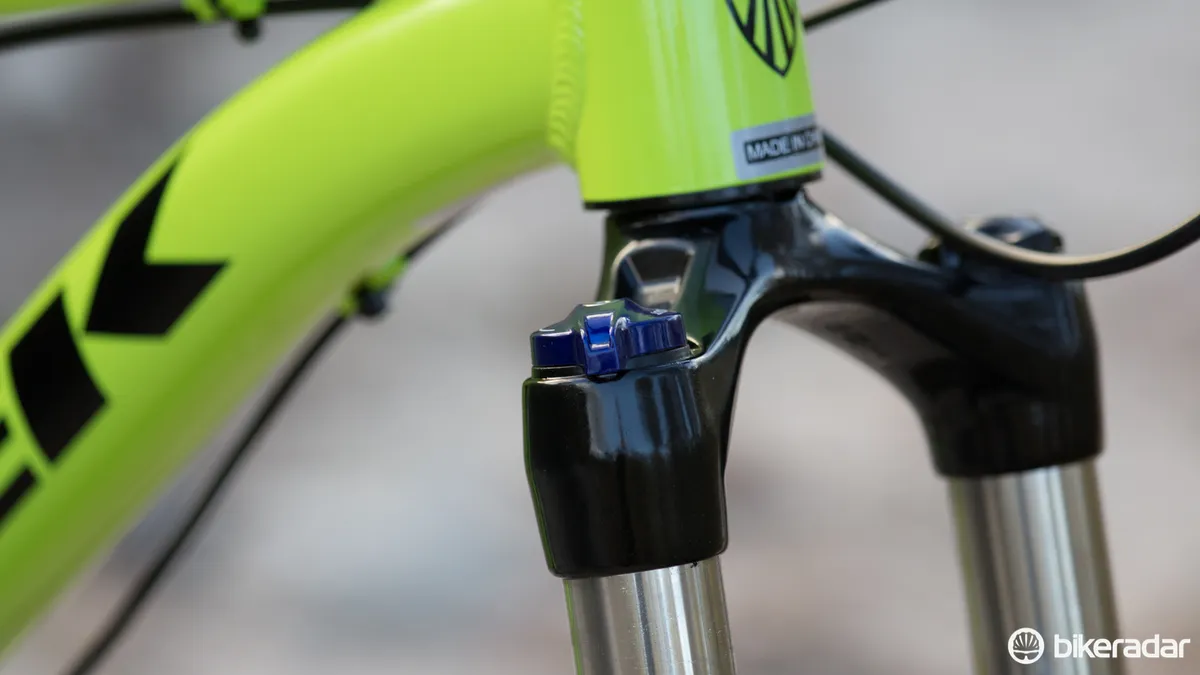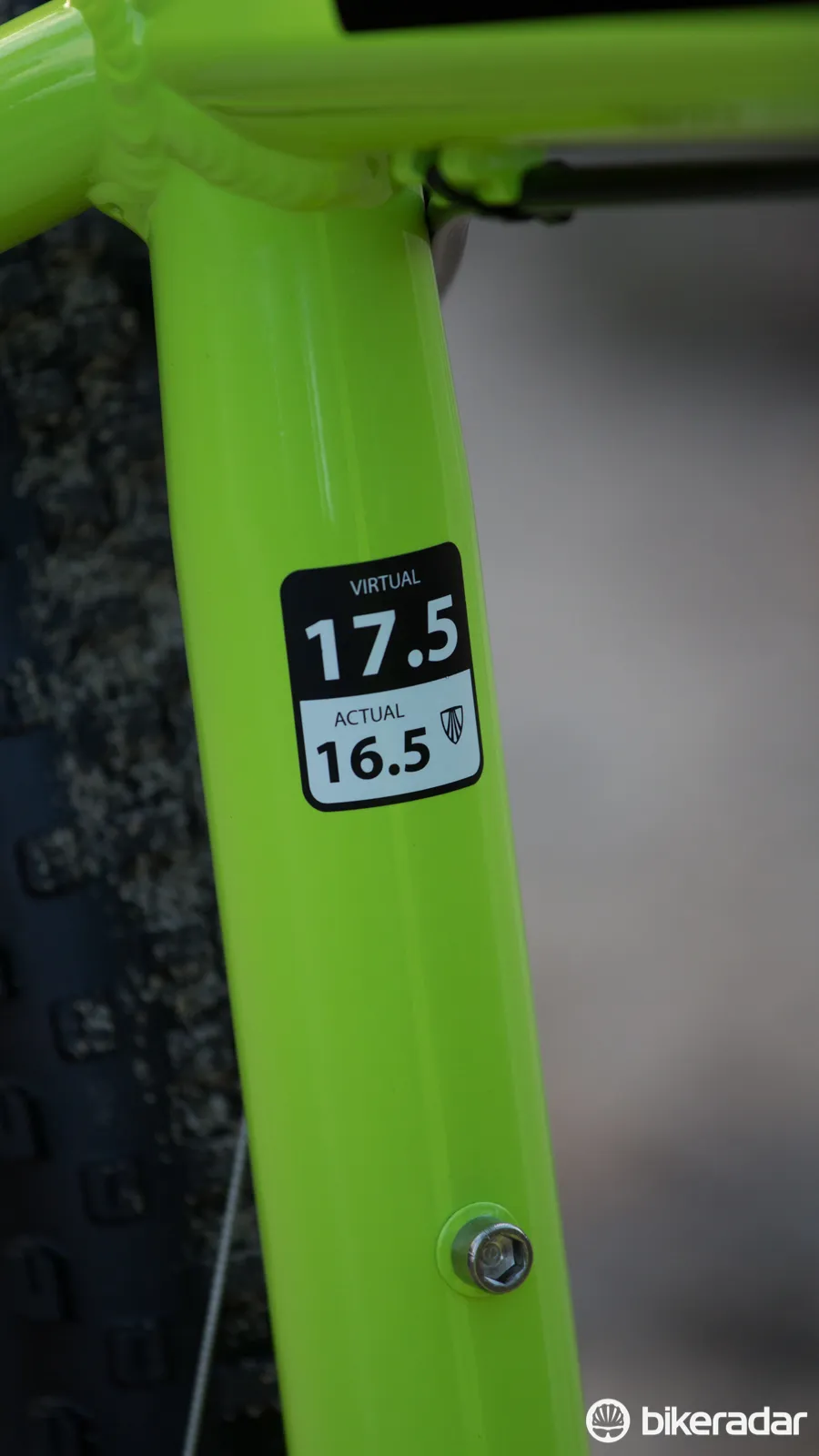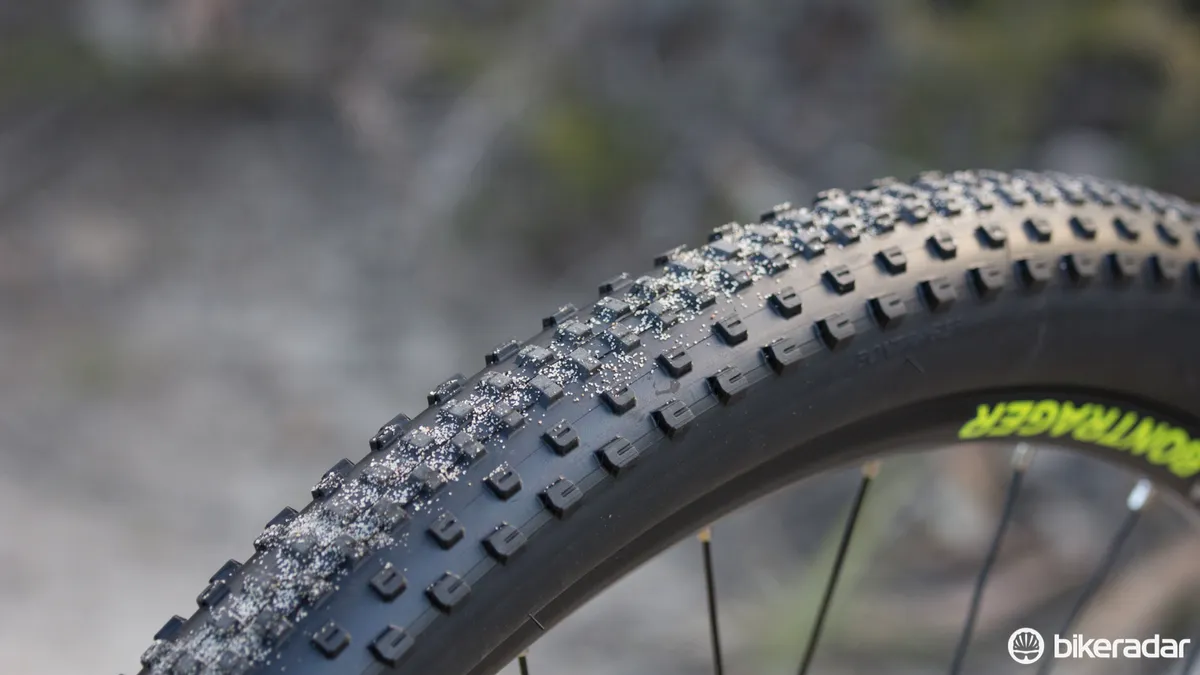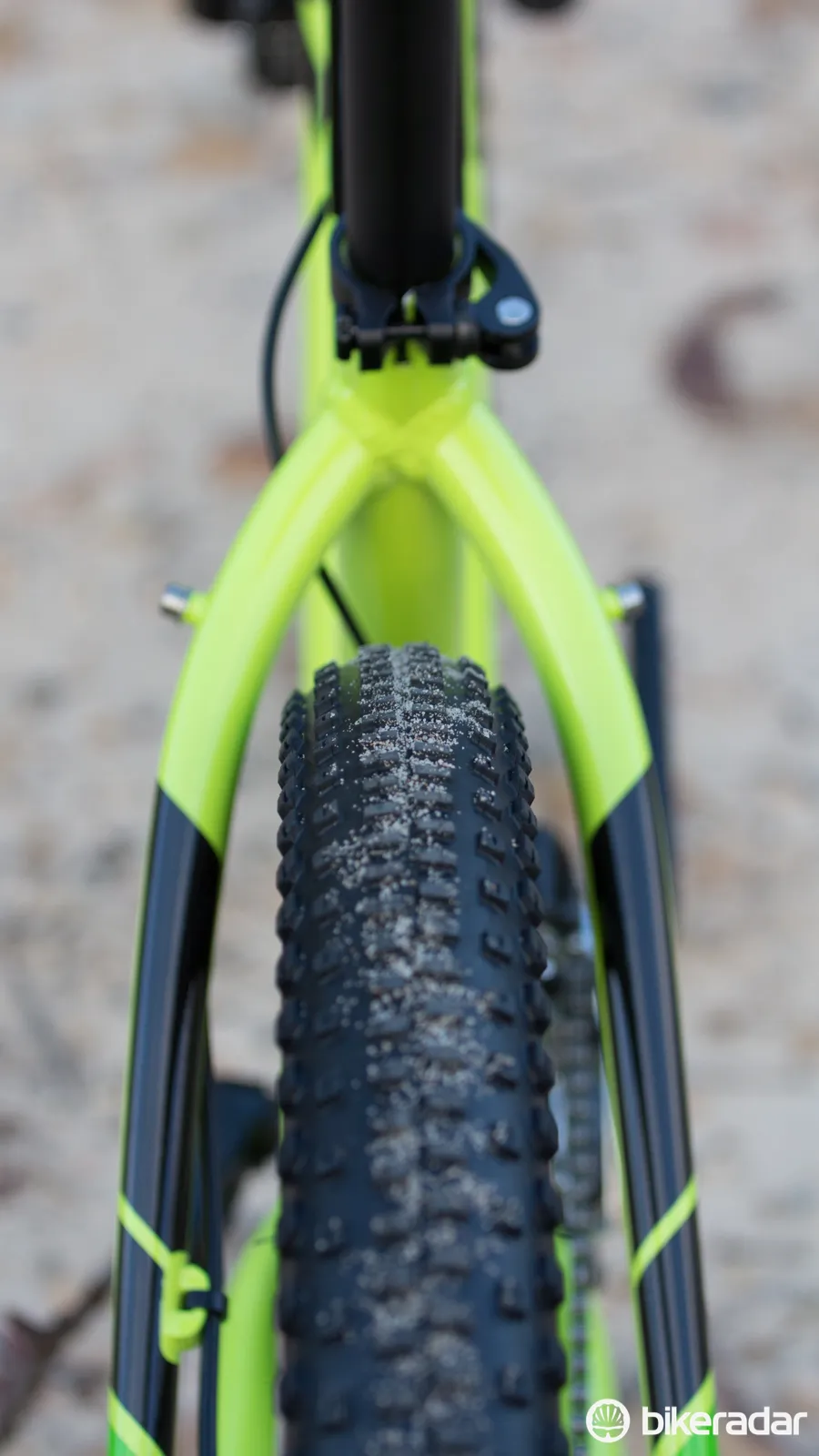In 2014, Trek's X-Caliber (Skye for women) was re-born as a range of entry-level 29er hardtails. Just a year on, it's undergoing further changes, thanks to what Trek calls ‘Smart Wheel Sizes’ – that means smaller 650b hoops for the two smallest frame sizes, and 29in ones for every other size.
Given our near perfect experience with last year’s X-Caliber 7, the sight of a RockShox branded fork on the new immediately had us smiling – although a corresponding price rise also has to be factored in. So is the new model worth the extra outlay?
Ride and handling: pro-level trail character with superb balance
The handling qualities of the last year’s X-Caliber 7 were a major factor in the praise we showered on it. Borrowing the geometry from Trek’s popular and World Cup-proven Superfly range, the 29in wheeled 7 rides like a performance bike, rather than the entry-level model that it is.
While smaller frame sizes will undoubtedly experience some difference in handling owing to their 650b wheels, our 17.5in-framed test bike immediately – and reassuringly – felt similar to the X-Caliber 7.
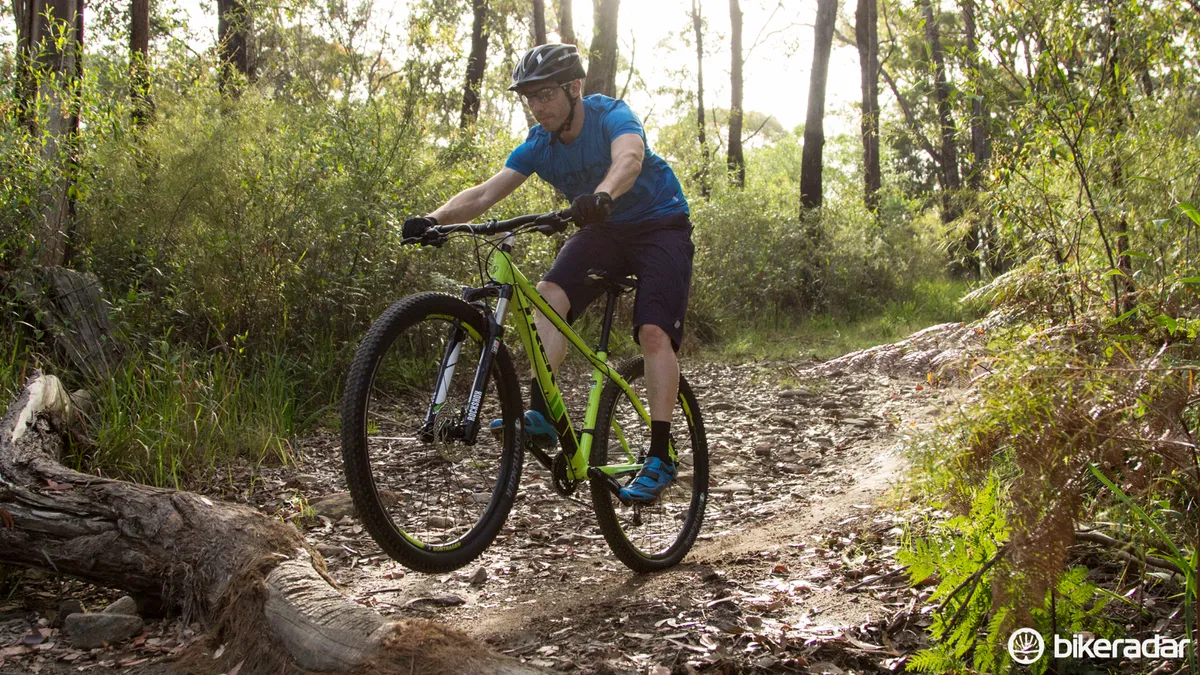
Out on the trail, the ride from the X-caliber's geometry shines
The spacious top tube, short stem combination means your weight sits evenly between the wheels, making for balanced handling. Factor in the relatively short rear end and you've got a comfortable riding position with easy manoeuvrability when the terrain requires. Meanwhile the wide, well-swept Bontrager handlebar offers plenty of leverage for confident control of the bike.
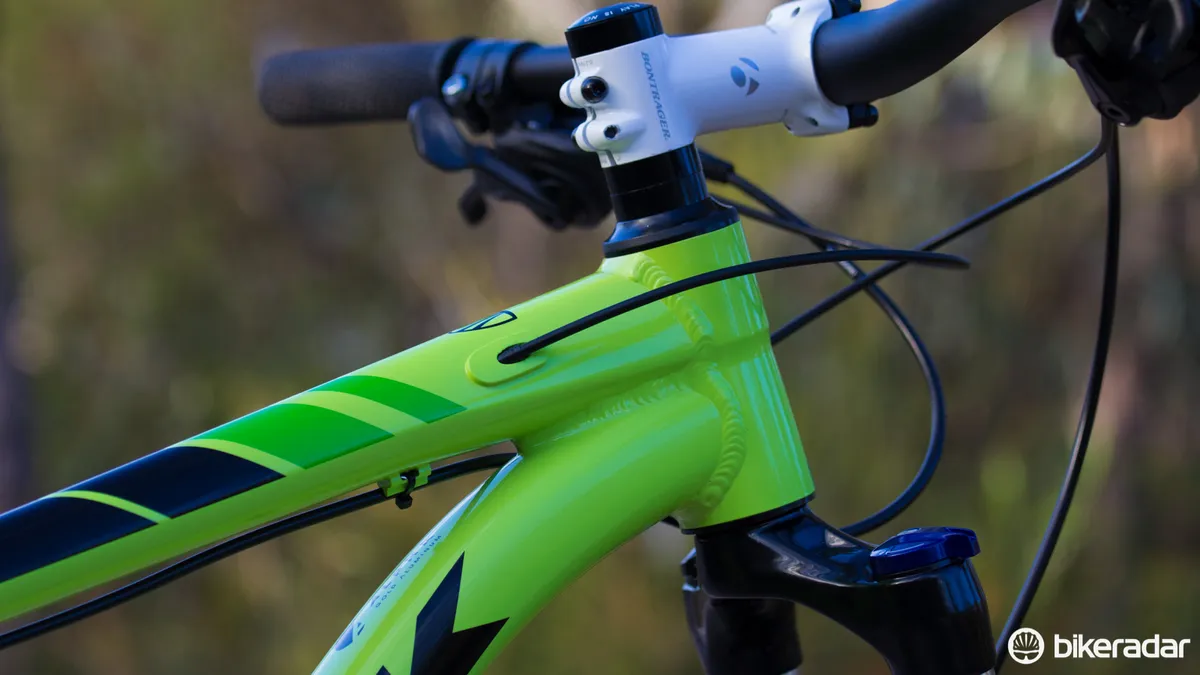
The front derailleur cable is routed internally through the top tube for a clean look
Plenty of handlebar height adjustment is available
It’s worth noting that the X-Caliber's responsive handling and undeviating climbing ability is only fully unlocked once the stem is lowered from its stock position. The bike's short head tube and a large stack of headset spacers allow for plenty of handlebar height adjustment options.
Rolling freely and with authority, the 29er wheels and large volume rubber take charge on rock and root infested trails. Smaller rocks and ripples in the ground go past unnoticed, with the RockShox XC32 fork doing a decent job at absorbing bigger hits – though sharp square-edged bumps can overwhelm it.
Along with a crown-mounted lockout and coil spring preload, the XC32 fork offers rebound control – something that is missing from cheaper models.
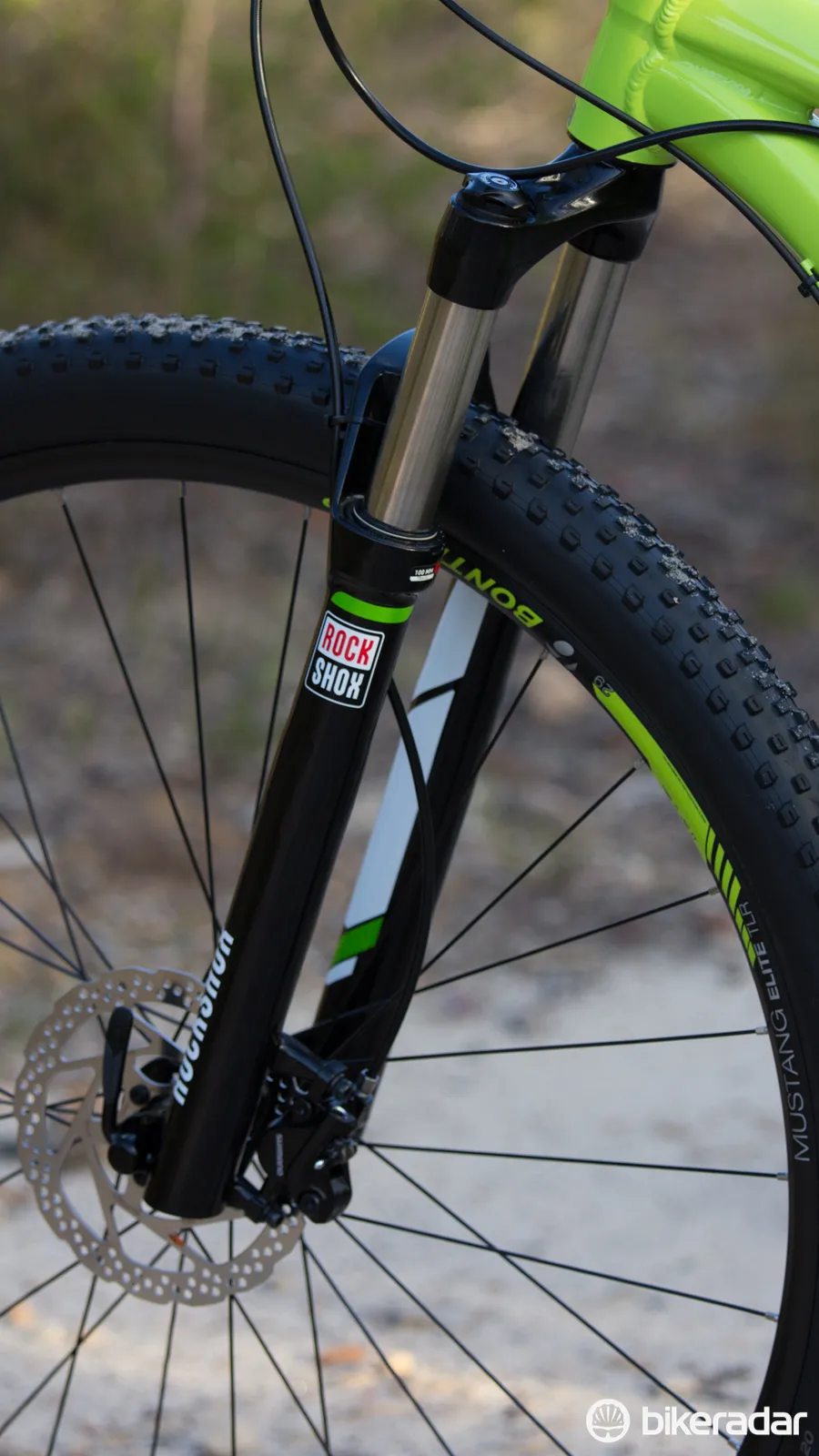
The RockShox XC32 fork works well in most conditions, though some flex becomes evident when it's really pushed
Unlike pricier steeds, the X-Caliber sticks with a standard 1 1/8in steerer and quick release axle. But it's only when you really push it that flex is felt in the fork – for most trail conditions, and most riders, it’s a non-issue. (It’s certainly stiffer than the 2015 X-Caliber 7’s XC30 fork)
Trek has also done a respectable job in smoothing the X-Caliber’s ride quality. While little compliance is offered by the alloy frame or firm handlebar grips, large 2.2in tyres go a long way towards filtering trail buzz. Combine this with a generously padded saddle that sits atop a skinny 27.2mm seat post, and the ride is by no means harsh.
It's worth bearing in mind though that while the X-Caliber is capable and eager to go just about anywhere, it does so more slowly than a fancier machine will. Whether you're hauling in speed for a fast approaching corner, conquering the steepest hill in the area or pumping the bike into the air, you're regularly reminded of the weight compromises – especially where it's carried by the wheels – that must inevitably be made with entry-level bikes.
Frame and equipment: well rounded build that’s capable of real riding
As mentioned above, depending on your size the 2015 X-Caliber frame goes through significant changes, or none at all. In the case of our 29in sample it’s the latter, with one exception in the form of brighter paint.
The frame is a fairly no-nonsense build featuring wide tyre clearance, internal front derailleur cable routing, easily serviced threaded bottom bracket and cleanly guided full-length sealed cable housing. Showcasing the potential versatility of the X-Caliber for commuting or light touring, the frame features both fender and pannier rack mounts out the back.
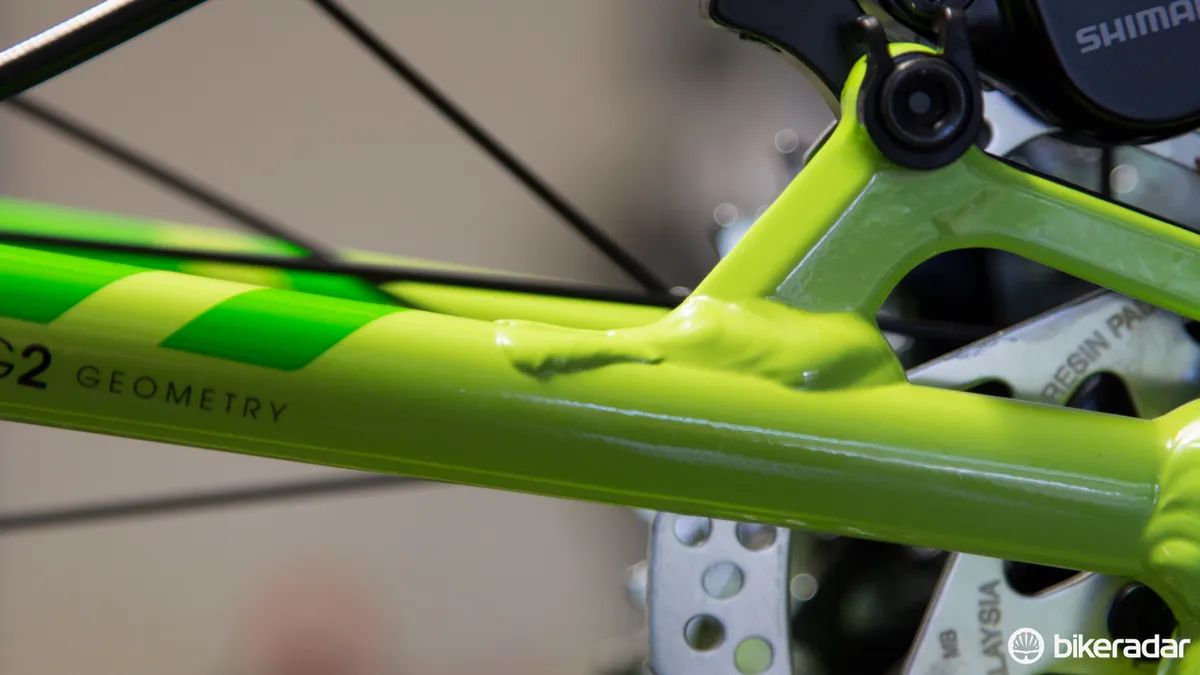
A bit of additional weld at the rear brake mount is used to reinforce the frame. Although it isn't the prettiest...
The build quality is pretty great, however, our brake hoses arrived a little long and messy. Good bike mechanics will clean this up before it reaches your hands, but if not, don't accept giant unnecessary loops in the hoses.
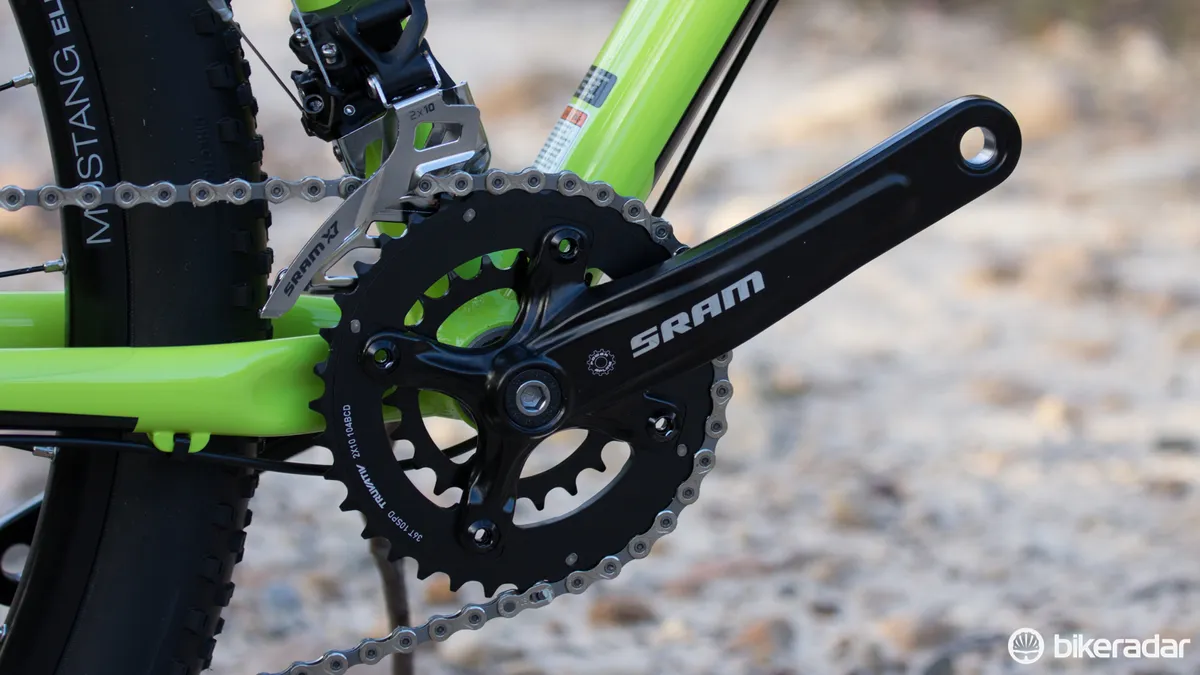
A 2x10 gearing system isn't commonly seen at the X-Caliber 8's price. But is it a good thing?
Given that this is the model above the previously tested X-Caliber 7, it’s no surprise the components are better. Beyond the front fork, the drivetrain is the next most obvious point of upgrade, with this model featuring a SRAM 2X10 system, more commonly seen on higher-end bikes. With 10-speed at the back and just two chainrings on the front, the X-Caliber’s gearing has been optimised for off-road use.
As discussed in our mountain bike groupset buyer’s guide, SRAM is Shimano’s key competitor and a popular choice in mountain biking. The X5/X7 components are an approximate equivalent to Shimano Deore and once set up correctly offer crisp and reliable shifting. It's still not as fast as more expensive options, but it didn’t miss a beat while being tested.
Gearing wise, the small chain ring and largest cog on the cassette enable you to crawl up even the steepest of climbs without too much stress. On the reverse, the 36T big chaninring is well suited to fast off-road use, though it may prove under-gunned for those looking to put a skinnier tyre on and commute. For such usage, other brands that stick with a triple chainring setup may suit you best.
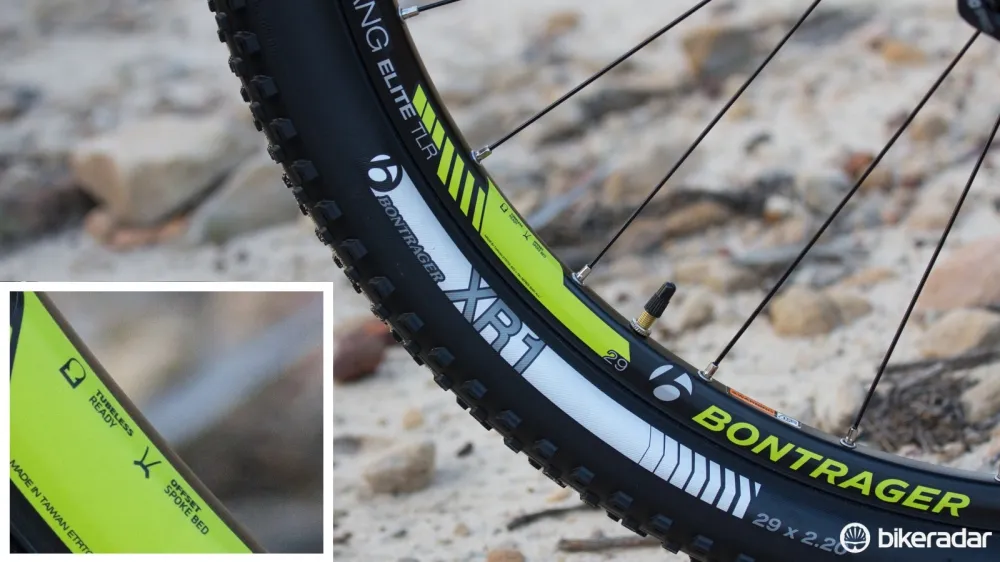
Quality components where it matters
Something we don’t often sing about on bikes at this price is tubeless tyres. A tubeless setup allows for lower tyre pressures without the risk of flatting, so providing a smoother ride quality and greater traction on the trail. Additional benefits include lower weight and reduced rolling resistance. While the X-Caliber isn’t set up tubeless, it does feature tubeless ready rims that proved nicely off-road worthy.
In order to ditch the tubes, you’ll still need to buy the appropriate rim strips, tubeless-ready tyres and sealant, but it’s the single biggest upgrade you can do to the bike (after decent pedals) and it’s not a huge expense either.
Although the supplied Bontrager tyres are durable and confident treads for many trail conditions, they carry plenty of weight. Upgrading to tubeless with a compatible tyre would see the bike drop half a kilogram (and probably more) in weight.
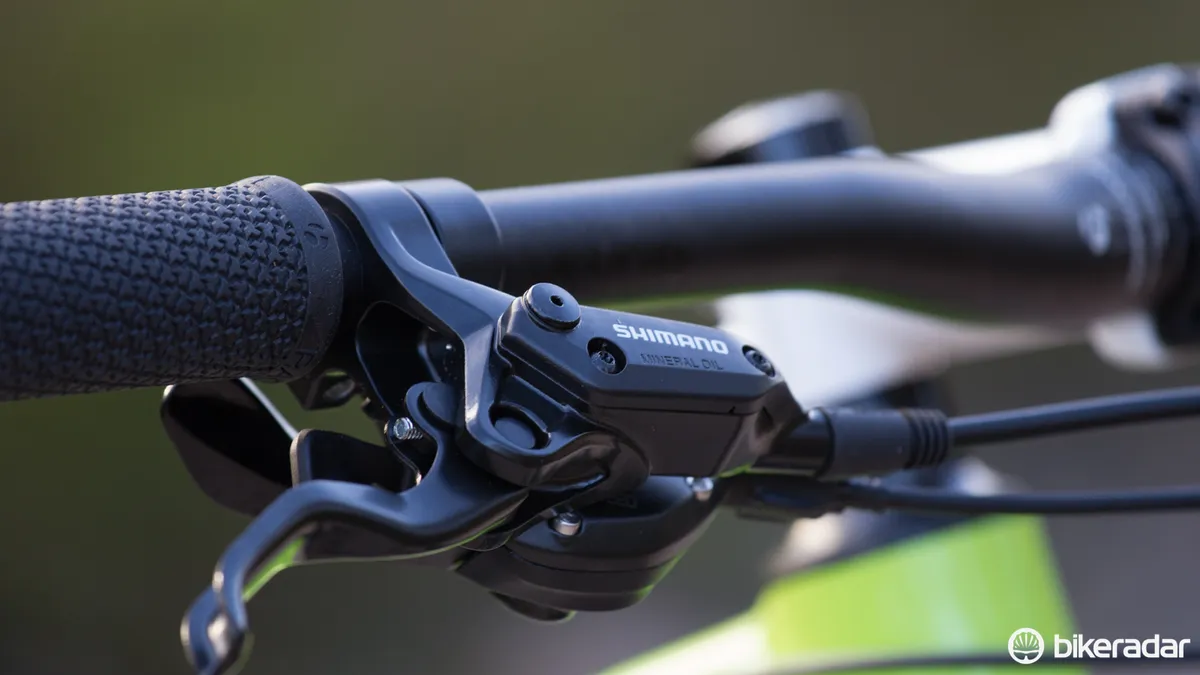
We're big fans of Shimano brakes – even the cheapest models
While SRAM takes care of the drivetrain, Shimano handles the braking duties. This is a common and popular choice, because Shimano's entry-level brakes set the benchmark with reliable function and solid performance. The basic model on the X-Caliber lacks the precise feel and bite of more expensive models, but newer riders will quickly gain complete confidence in the system.
So we’ve covered what you’re gaining over the cheaper X-Caliber 7, but it's also worth considering what you get at the next pricepoint up.
In some countries (including the US and UK), the X-Caliber 9 is also available and provides an example of what to expect. It offers an air-sprung fork for greater suspension tuneability and substantial weight savings. Additionally, the drivetrain components see a further upgrade that should aid in long-term durability. Finally, the hubs move to a sealed bearing unit – effectively creating a lighter system that use replaceable cartridge bearings instead of the cup and cone loose ball-bearing system found on the X-Caliber 8 and below.
Common advice when buying a starter mountain bike is to spend as much as your budget allows. As we’ve seen in our testing of the X-Caliber 8, that advice rings true in the form of lower weight along with suspension, gearing and wheels that are better suited to the punishment meted out by off-road use. Whatever your budget, be sure to factor in the cost of pedals, as those included won’t let you see what this bike is capable of.
